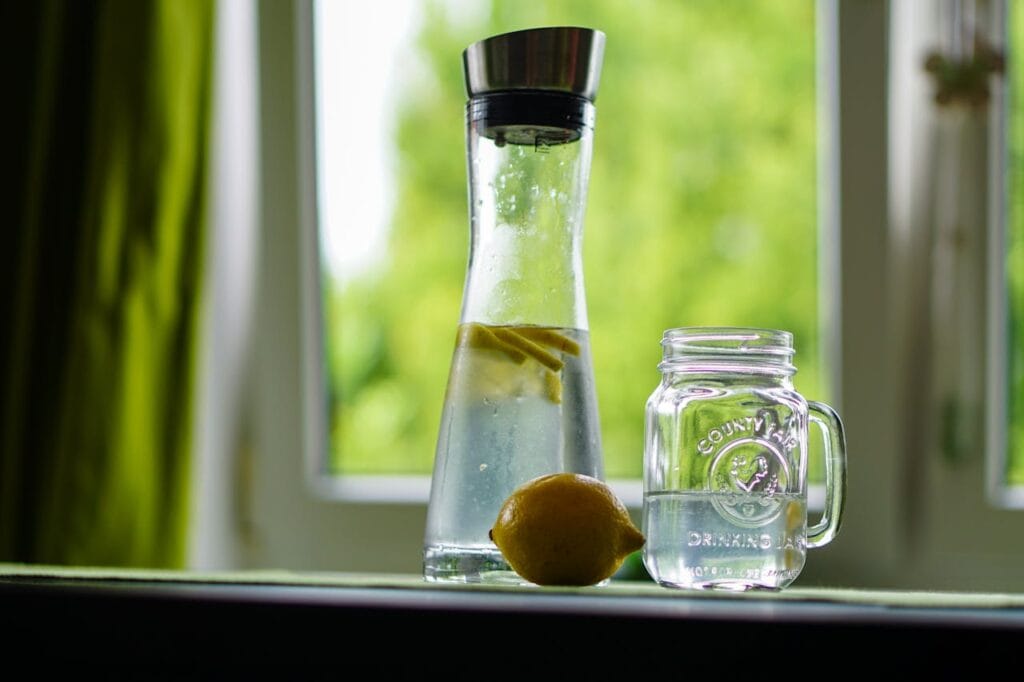Last Updated on October 3, 2025 by shawnshealth
Discover 5 simple and effective ways to boost senior health and wellness. From easy exercises to a balanced diet, learn how to enhance your vitality and live your best life as you age.
Introduction: 5 Easy Steps to Boost Senior Health and Wellness
Aging is a natural part of life, but it doesn’t mean slowing down or losing vitality. In fact, more seniors today are focused on staying healthy, active, and engaged in their communities. Maintaining health and wellness as you grow older is about finding simple, sustainable habits that enhance your quality of life. Whether you’re looking to increase your energy levels, improve your mobility, or simply feel your best each day, these five easy steps can help you live your golden years to the fullest.
Each step is designed to be practical and achievable, so no matter where you are on your wellness journey, you’ll find something you can start doing today.
💪 Ready to take the next step in your wellness journey? Start with our foundational guide: Senior Fitness: 15 Essential Principles for Strength, Mobility, and Healthy Aging. It covers safe progression, joint-friendly movement, and practical strategies to help older adults build lasting strength and independence.
Why Does Sleep Quality Decline With Age?
- Hormonal shifts reduce deep sleep
- Less physical activity affects rest cycles
- Sleep disorders increase with age
- Poor sleep impacts memory, mood, and immunity
What Daily Habit Can Sharpen Senior Mental Health?
- Morning light exposure boosts brain function
- Short walks improve circulation and focus
- Mind games like puzzles delay cognitive decline
- Hydration enhances alertness and mood
How Can Seniors Improve Joint Strength Without Weights?
- Chair-based stretches increase mobility
- Aquatic movement reduces joint strain
- Resistance bands add light pressure safely
- Tai Chi supports balance and flexibility
What’s a Smart Way for Seniors to Stay Social?
- Join community walking clubs
- Schedule weekly video calls with family
- Attend free local senior events
- Volunteer to stay engaged and purposeful
💪 Discover how to build strength and confidence after 60 Read Stay Strong After 60 – Strength Training at Any Age to learn safe, effective resistance exercises that help older adults boost muscle, improve balance, and stay active for life.
Table of Contents
Medical Disclaimer: This content is for informational purposes only. Consult a healthcare professional before making any health or fitness changes.
Amazon Affiliate Disclaimer: As an Amazon Associate, I earn from qualifying purchases.
🏋️♂️ Want to stay strong, mobile, and confident after 60? Elderfit TV offers expert-led workouts designed specifically for older adults—focusing on strength, balance, and independence through safe, effective routines
The 5 Steps
1. Prioritize Regular Physical Activity
Regular exercise is one of the most important things seniors can do to maintain both physical and mental health. However, the key is consistency, not intensity. Gentle, low-impact exercises are incredibly effective for improving mobility, boosting energy, and maintaining independence. Studies show that physical activity can also help prevent chronic diseases, improve balance, and enhance cognitive function.
🧍♂️💪 Want to move better, feel stronger, and stay independent as you age? Explore our guide on Functional Strength for Seniors: 10 Essential Exercises for Daily Life to learn how targeted movements can improve balance, mobility, and real-world strength—no gym required.
Why It Matters:
To improve senior health and wellness physical activity added as a healthy lifestyle can significantly lower the risk of heart disease, stroke, diabetes, and certain cancers, all of which become more prevalent with age. It also strengthens bones and muscles, which helps reduce the risk of falls—one of the biggest concerns for seniors.
Best Types of Exercise for Seniors:
- Walking: Walking is one of the easiest and most effective forms of exercise. It strengthens your heart, improves circulation, and boosts your mood. You don’t need a gym membership—just a good pair of shoes and 20-30 minutes a day.
- Stretching: Flexibility decreases as we age, making it important to incorporate regular stretching into your routine. Stretching helps improve mobility, reduces joint pain, and increases blood flow to your muscles.
- Strength Training: Light resistance training helps build muscle, improve balance, and prevent bone loss. You can use light dumbbells, resistance bands, or even your own body weight.
- Water Aerobics: If you have access to a pool, water-based exercises are great for low-impact, full-body workouts. Water supports your body and reduces strain on joints.
🏋️♂️ Avoid common calisthenics mistakes and build strength more efficiently Read our guide on Minimizing Calisthenics Mistakes for Seniors to improve form, prevent injury, and reach your fitness goals faster with safe, effective bodyweight training.
How to Start:
Remember that the term “healthy lifestyle” refers to a change from one lifestyle to another long term yet healthier lifestyle. We humans are best equipped for making gradual consistent changes. Therefore, if you’re new to exercise, start slow. Begin with short walks around your neighborhood and gradually increase your pace and duration. Incorporate simple stretching or yoga routines a few times a week. The goal is to move a little every day, and over time, you’ll start to see and feel the benefits.

2. Stay Hydrated
As we age, our sense of thirst diminishes, which can lead to dehydration—a condition that’s especially dangerous for seniors. Dehydration can cause confusion, fatigue, and increase the risk of falls and other health complications. That’s why it’s important to stay on top of your hydration, even when you don’t feel thirsty.
Why Hydration is Critical:
Water is essential for nearly every function in the body. It regulates body temperature, lubricates joints, helps digest food, and aids in the absorption of nutrients. For seniors, staying hydrated is also linked to improved cognitive function, better skin health, and enhanced kidney function.
How Much Water Do You Need?
The general recommendation is to drink about 6-8 cups of water per day, but your specific needs can vary based on activity level, medications, and underlying health conditions. Keep in mind that not all hydration needs to come from water—fruits and vegetables with high water content, such as cucumbers, oranges, and melons, can also contribute to your daily intake.
Tips for Staying Hydrated:
- Keep Water Accessible: Carry a water bottle with you at all times. This makes it easy to sip throughout the day without having to think about it.
- Flavored Water: If plain water is unappealing, try adding slices of lemon, lime, or cucumber to add a refreshing flavor. Herbal teas (unsweetened) are also a great option.
- Track Your Intake: Some seniors find it helpful to use a water tracking app or write down how much water they’ve consumed throughout the day.
- Set a Hydration Routine: Drink a glass of water first thing in the morning, with each meal, and before bed. Building it into your daily routine helps ensure you meet your hydration needs.

3. Eat a Balanced, Nutrient-Dense Diet
Eating well is one of the simplest and most effective ways to maintain your health as you age and is a significant factor in reference to senior health and wellness. A nutrient-rich diet provides the vitamins and minerals necessary to support everything from immune function to bone health. Seniors should focus on eating whole, unprocessed foods that provide a variety of nutrients, while avoiding processed foods high in salt, sugar, and unhealthy fats.
Key Nutrients for Seniors:
- Calcium & Vitamin D: These are critical for maintaining bone health and preventing osteoporosis. Foods like dairy products, fortified plant-based milks, leafy greens, and fatty fish are great sources.
- Fiber: Fiber supports digestive health and helps prevent constipation. High-fiber foods like whole grains, vegetables, fruits, and legumes are key.
- Protein: As we age, muscle mass tends to decline. Protein helps preserve muscle and supports immune health. Include lean proteins like chicken, fish, beans, and tofu in your diet.
- Healthy Fats: Omega-3 fatty acids found in fish, walnuts, and flaxseeds are known to support heart health and reduce inflammation.
Simple Tips for Eating Well:
- Plan Your Meals: Planning your meals in advance ensures that you’re eating a balanced diet without having to make decisions on the fly. Try to include a protein, a vegetable, and a whole grain at each meal.
- Portion Control: Seniors often need fewer calories than younger adults, but nutrient needs remain the same. Focus on eating smaller portions of nutrient-dense foods to meet your needs without overeating.
- Stay Consistent: Eating small, frequent meals can help keep your energy levels steady throughout the day and prevent overeating at night.
How to Make It Easier:
For those who find it challenging to prepare meals, consider batch cooking on weekends or using meal delivery services that cater to seniors and offer healthy, pre-prepared meals.

4. Stay Socially Connected
Loneliness and social isolation are growing concerns for seniors, as they can lead to depression, anxiety, and even cognitive decline. Maintaining strong social ties and staying connected to friends, family, and community members is one of the most overlooked aspects of senior health and wellness as well as a healthy lifestyle for any age. In other words, don’t wait, start now, regardless of age.
Why Social Connections Matter:
- Mental Health: Socializing with others reduces the risk of depression and helps keep your mind engaged. Whether through regular phone calls, video chats, or in-person visits, connection with others is vital to maintaining emotional well-being.
- Physical Health: Seniors who are socially engaged tend to be more physically active, which promotes better health outcomes.
- Cognitive Health: Regular interaction with others stimulates the brain and can help delay the onset of dementia and other cognitive disorders.
Ways to Stay Connected:
- Join a Group: Many senior centers offer clubs or activity groups focused on hobbies like gardening, reading, or arts and crafts. Joining one of these groups can help you meet new people and stay engaged.
- Volunteer: Volunteering is a great way to give back to your community while also staying socially active. Many organizations actively seek volunteers, and it’s a fulfilling way to stay connected with others.
- Stay in Touch with Family: Even if family members live far away, make an effort to stay connected through regular phone or video calls. Setting up a regular schedule (like Sunday afternoon chats) can help create a routine of communication.
Technology Tips for Staying Connected:
- Use Video Calls: Platforms like Zoom or FaceTime allow you to connect with loved ones face-to-face, even if they’re far away.
- Join Online Communities: There are many online communities designed for seniors to meet new friends, discuss hobbies, and share experiences.
- Social Media: Social media platforms like Facebook can help you stay connected with family and friends, share photos, and keep up with the latest news and events.

5. Prioritize Quality Sleep
As much as you might love staying up for the late show (I know I do) the need for sleep in order to promote senior health and wellness can’t be overstated. Good sleep is a cornerstone of health at any age, but many seniors struggle to get the rest they need. Sleep problems can arise due to changes in sleep patterns, medical conditions, or even medications. However, prioritizing sleep is vital, as it helps your body recover, supports immune function, and improves mental clarity.
Why Sleep is Important:
Sleep is when your body repairs itself. For seniors, who are at greater risk for illnesses and injuries, getting enough rest is critical to the healing process. Good sleep also helps with memory retention, mood regulation, and stress management.
How to Improve Sleep Quality:
- Create a Sleep Routine: Going to bed and waking up at the same time every day helps regulate your body’s internal clock, making it easier to fall asleep and wake up feeling rested.
- Optimize Your Sleep Environment: A dark, quiet, and cool room is the best environment for quality sleep. Consider using blackout curtains, earplugs, or a white noise machine to reduce disturbances.
- Limit Screen Time: The blue light from screens can interfere with your body’s production of melatonin, a hormone that promotes sleep. Try to avoid using electronic devices at least one hour before bedtime.
- Stay Active During the Day: Physical activity helps promote better sleep at night. However, avoid vigorous exercise close to bedtime, as it may have the opposite effect.
😴⚖️ Struggling with sleep and noticing weight changes? Read our article on Lack of Sleep and Weight Gain in Older Adults to learn how poor sleep affects metabolism, appetite hormones, and fat storage—and what seniors can do to improve rest and support healthy weight.
When to See a Doctor:
If sleep problems persist despite making lifestyle changes, it may be worth discussing with a healthcare provider. Conditions like sleep apnea, restless leg syndrome, and insomnia can be treated with the right intervention.

Conclusion:
Maintaining your senior health and wellness doesn’t have to be complicated. By focusing on these five simple steps—regular physical activity, staying hydrated, eating a nutrient-dense diet, staying socially connected, and prioritizing sleep—you can improve your quality of life and continue doing the things you love.
Whether you’re just starting out on your wellness journey or looking to fine-tune your existing routine, small changes can have a big impact over time. So, if you are looking for a healthy lifestyle, or as the title, “senior health and wellness”, the afore mentioned steps are so very important.
As we look at all of these steps, they really aren’t rocket science. In some form you inherently knew these things already, yet, since we no longer live in a shelter made of branches and rocks, and we no longer spend our days hunting, fishing, and gathering, we have somehow lost the “natural” part of these things that used to be so natural to us and were part of that healthy lifestyle we were born into.
Today, we do what we can to get back to that time for which we are made. Senior health, a healthy lifestyle, and our health and wellness are something that we actually now have to do on purpose. Well, might as well start now. Why not?
🌱 Your health journey starts here—no matter your age or experience level Explore ShawnsHealth.com for expert insights on fitness, strength training, nutrition, and holistic wellness. Whether you’re just starting out or refining your routine, you’ll find practical, evidence-based guidance to help you live stronger, longer, and better.
🏋️♀️ Start with the essentials Visit our Senior Fitness page for safe, progression-aware workouts, strength-building tips, and practical routines designed to help older adults stay active, independent, and strong.

🧠💪 Looking for simple, science-backed habits to boost longevity and vitality after 60? Explore AARP’s expert guide: 60 Ways to Live Longer, Stronger, and Better for actionable tips on sleep, nutrition, fitness, brain health, and more
🔥 Gear to Help You Achieve Your Health and Fitness Goals 💪
If you’re looking for tools to enhance your fitness journey, check out this. Explore top-rated fitness gear on Amazon to enhance your workouts. Check out the latest picks here! 🛒 to support your workouts and progress.
🚀 Find equipment designed to boost strength, endurance, and overall performance!
⚠️ Short disclaimer: As an Amazon Associate, I earn from qualifying purchases.
💠Frequently Asked Questions About Senior Health and Wellness
What are simple daily habits that support senior independence?
- Light exercise improves mobility
- Consistent routines help with memory
- Hydration and meals at set times build stability
How can older adults boost mood naturally?
- Regular sunlight exposure lifts serotonin
- Connecting with others reduces loneliness
- Music, nature, and laughter ease anxiety
Is strength training safe for seniors?
- Yes, when using bodyweight or light resistance
- Supervised sessions reduce injury risk
- Improves bone density and fall prevention
What foods should seniors prioritize daily?
- Leafy greens for brain health
- Lean proteins for muscle preservation
- Berries and nuts for antioxidants
How often should seniors have wellness checkups?
- At least once a year
- More frequently with chronic conditions
- Regular visits help catch issues early
Can technology really improve senior health?
- Health apps track vitals and meds
- Video chats ease isolation
- Fitness wearables encourage movement
Why is hydration more important with age?
- Thirst response weakens over time
- Dehydration affects memory and energy
- Helps regulate blood pressure and digestion
What’s a gentle way to start exercising after 60?
- Begin with 5–10 minutes daily
- Use chairs or walls for support
- Focus on balance, stretching, and breath
I have fought the good fight, I have finished the race, I have kept the faith. – 2 Timothy 4:7




